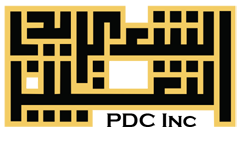
Tunisia: A Strategic Choice in an overwhelmed International Agenda
Terrorism, critical humanitarian crisis, conflicts… all of these and more have became daily realities in the Middle East and North Africa, and consistently filled international agenda with emergencies needing urgent attention and solutions, yet prevented the international community from framing international interventions within a real strategy, as well as coordinating effort for common long-term goals. Certainly, the situation in the Middle East differs from a country to another, which made some countries, like Tunisia, falls to the end of the agenda. However, the international community may be loosing a huge opportunity to stabilize the region if they don’t act quickly and efficiently in helping struggling Tunisia keep progressing in its democratic transition. To this end, the Atlantic Council hosted on June 7th a discussion of a new report titled, “A Transatlantic Strategy for a Democratic Tunisia”. According to the report, economic development, security and democratic development are the three main critical encounters Tunisia is facing. These three areas are strongly and complexly tied together making prioritizing impossible.
The U. S. and The EU’s role at this point is to approach Tunisia with more urgency and deliver more strategic support within a Transatlantic Strategy. The report proposes four axes for U.S. and EU collaboration: first, increasing joint aid, second closely coordinating their aid as well as focusing on few key areas, third, giving more attention to democracy building, and fourth engaging with Tunisia differently than with other non-democratic Arab countries by including all stakeholders as civil society leaders, activists, entrepreneurs and reform advocates.
Helping Tunisia is becoming almost equal to preventing the country from becoming both a hub for ISIS and a highway for illegal migrants to Europe. While Tunisia has been fueling ISIS with significant number of fighters, the illegal migration trafficking in Tunisia had $ 3 billion revenues last year, according to Nicholas Westcott, the managing Director of Middle East and North Africa in the European External Action Service. Being the only successful democratic experiment, Tunisia-if helped-can be a strategic choice and a receptive environment to sustainable democracy and can potentially help stabilizing the whole region.
Image obtained from Atlantic Council
